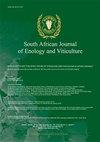酒业废水用于灌溉的禾草阔叶作物的选择研究进展
IF 1.1
4区 农林科学
Q4 FOOD SCIENCE & TECHNOLOGY
引用次数: 2
摘要
酒厂废水中含有高含量的钠、磷、钾等元素,以及化学需氧量、钠吸附率和pH值。这可能会引起人们对周围环境污染的担忧。环境友好的方法,如回收,即处理和再利用,其中处理或部分处理和稀释的废水用于灌溉农作物,是必不可少的。用富含营养的酿酒厂废水灌溉,作为传统肥料的替代品,有利于提高土壤的整体肥力。然而,长期使用废水可能会对土壤理化性质产生负面影响。选择具有营养拦截能力的作物,最好是含盐作物,可能是去除土壤中多余元素的理想选择,同时减少疼痛和多余流失,南非葡萄酒工业中每年冬季种植的谷物和冬季种植的路叶固氮一年生植物作为冬季覆盖作物已经得到了广泛的记录,但它们作为夏季捕获作物通过废水灌溉应用的拦截元素的用途尚未得到很好的研究。本文章由计算机程序翻译,如有差异,请以英文原文为准。
Selection of Grass and Broadleaf Crops as Catch Crops where Winery Wastewater is Used for Irrigation: A Review
Winery wastewater contains high levels of elements such as sodium, phosphorus, potassium, as well aschemical oxygen demand, sodium adsorption ratio and pH. This may raise concerns regarding the pollutionof the surrounding environment. Environmentally friendly methods such as recycling, i.e. treatment andre-use, where treated or partially treated and diluted wastewater is used for irrigation of agricultural crops,are essential. Irrigation with winery wastewater, which is rich in nutrients, can be beneficial to overall soilfertility as an alternative to conventional fertilizers. However, long-term applications of wastewater mayhave a negative effect on soil physicochemical properties. A selection of crops with nutrient interceptionabilities, preferably for salts, may be ideal for the removal of excess elements from the soil whilst reducingleaching and excess run off. The use of perennial grasses, annual winter growing grains and winter growingbroadleaf nitrogen-fixing annuals as winter cover crops in the South African wine industry has beenextensively documented but their use as summer catch crops intercepting elements applied via wastewaterirrigation has not yet been well researched.
求助全文
通过发布文献求助,成功后即可免费获取论文全文。
去求助
来源期刊
CiteScore
2.50
自引率
7.70%
发文量
1
审稿时长
>36 weeks
期刊介绍:
The South African Journal of Enology and Viticulture (SAJEV) publishes full-length original Research Papers, Research Notes and Review Papers on all subjects related to enology and viticulture. The SAJEV does not accept articles published in, or submitted to, other journals.

 求助内容:
求助内容: 应助结果提醒方式:
应助结果提醒方式:


